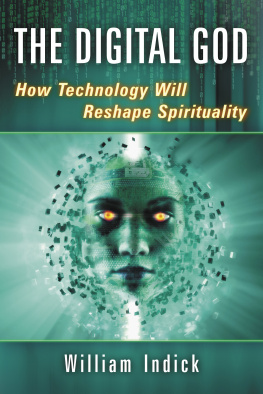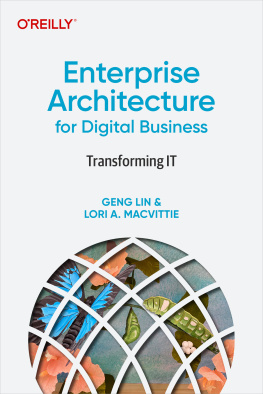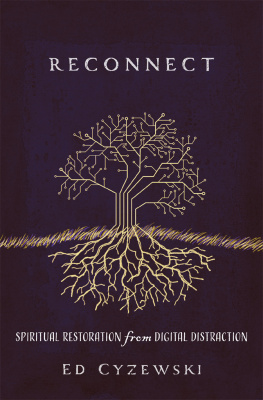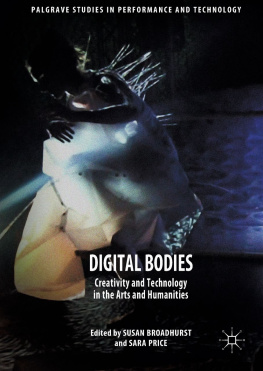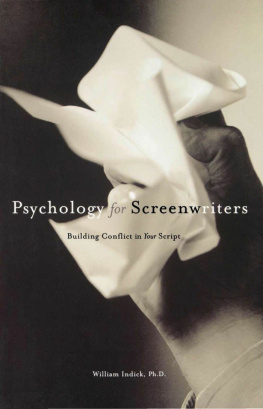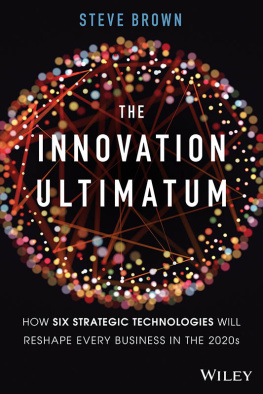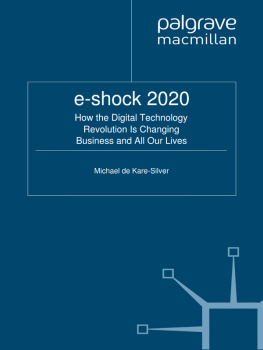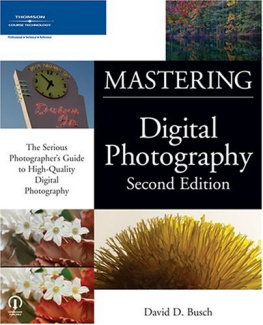Indick - The digital God : how technology will reshape spirituality
Here you can read online Indick - The digital God : how technology will reshape spirituality full text of the book (entire story) in english for free. Download pdf and epub, get meaning, cover and reviews about this ebook. year: 2015, publisher: McFarland & Company, genre: Religion. Description of the work, (preface) as well as reviews are available. Best literature library LitArk.com created for fans of good reading and offers a wide selection of genres:
Romance novel
Science fiction
Adventure
Detective
Science
History
Home and family
Prose
Art
Politics
Computer
Non-fiction
Religion
Business
Children
Humor
Choose a favorite category and find really read worthwhile books. Enjoy immersion in the world of imagination, feel the emotions of the characters or learn something new for yourself, make an fascinating discovery.
The digital God : how technology will reshape spirituality: summary, description and annotation
We offer to read an annotation, description, summary or preface (depends on what the author of the book "The digital God : how technology will reshape spirituality" wrote himself). If you haven't found the necessary information about the book — write in the comments, we will try to find it.
Indick: author's other books
Who wrote The digital God : how technology will reshape spirituality? Find out the surname, the name of the author of the book and a list of all author's works by series.
The digital God : how technology will reshape spirituality — read online for free the complete book (whole text) full work
Below is the text of the book, divided by pages. System saving the place of the last page read, allows you to conveniently read the book "The digital God : how technology will reshape spirituality" online for free, without having to search again every time where you left off. Put a bookmark, and you can go to the page where you finished reading at any time.
Font size:
Interval:
Bookmark:

Also by WILLIAM INDICK
AND MCFARLAND
Ancient Symbology in Fantasy Literature: A Psychological Study (2012)
The Psychology of the Western: How the American Psyche Plays Out on Screen (2008)
Psycho Thrillers: Cinematic Explorations of the Mysteries of the Mind (2006)
Movies and the Mind: Theories of the Great Psychoanalysts Applied to Film (2004)

McFarland & Company, Inc., Publishers
Jefferson, North Carolina
LIBRARY OF CONGRESS CATALOGUING DATA ARE AVAILABLE
BRITISH LIBRARY CATALOGUING DATA ARE AVAILABLE
e-ISBN: 978-1-4766-2012-1
2015 William Indick. All rights reserved
No part of this book may be reproduced or transmitted in any form or by any means, electronic or mechanical, including photocopying or recording, or by any information storage and retrieval system, without permission in writing from the publisher.
Cover image 2015 Blend Images
McFarland & Company, Inc., Publishers
Box 611, Jefferson, North Carolina 28640
www.mcfarlandpub.com
For my mother with love
There are more things in heaven and earth, Horatio, than are dreamt of in your philosophy.Hamlet (Act I, Scene 5)
On the rainy evening of August 21, 1879, in County Mayo, Ireland, Mary McLoughlin and Mary Beine, from the village of Knock, walked by the town church on their way home. To their surprise, they saw a vision on the church wall of the Virgin Mary, St. Joseph, and St. John. They were standing beside an altar. A lamb and a cross were on the altar, and several angels hovered above the lamb. As they gazed at the vision for about two hours, standing in the pouring rain, 13 other villagers joined them, and they all claimed to see the vision as well. In time, the Marian Apparition at Knock received official acknowledgment from the Catholic Church. A shrine was built on the site of the apparition, which has been visited by millions of pilgrims.
What exactly happened in Knock? We will never know. However, we can be fairly certain that the two women named Mary and their fellow villagers saw something, and what they believed they saw was, in fact, the Virgin Mary, two saints, angels, an altar, a lamb, and a cross. Whether or not this vision was objective or subjective will never be known. However, if we ask the questionWas the vision real?the answer, incontrovertibly, is Yes. People see what they see, and their visions are always real to them, because at the neurological level, all perception is a combination of belief, expectation, memory, imagination, intuition, and also a bit of visual sensory input. If I happened to be walking by the church in Knock on that very night, and if I looked at the wall and saw only shadows and reflections, the images that I beheld in my mind would be no more or less real than the image of Mary and the angels and saints beheld in the minds of the Knock villagers. At the electrochemical level of neurons firing in the brain, there would be no difference between a perception based primarily on visual sensory input, or a perception based primarily on expectation and belief. At the neuronal level, both perceptions are equally real, although only one of the perceptions would be considered spiritual. This book will explore the phenomenon of spiritual perceptionthe experience of perceiving with ones senses something that is believed to be otherworldly, supernatural, or divine. The experience of spiritual perception is completely real, at least within the mind of the beholder, which is where all reality is perceived anyway. However, there is an extremely important rub. If perception is largely shaped by belief, how can someone perceive spirits, or angels, or Mary, or God, if he doesnt believe in their existence? Belief appears to be a prerequisite for spiritual perception. Religion, unfortunately, forces us to confront a paradox.
The paradox of faith is the dilemma that any reasonable individual faces when he thinks about God. Why should I believe in God, when there is absolutely no objective empirical evidence to prove his existence? Whereas faith is belief without the presence of proof, the contemporary educated individual has been taught to seek for objective evidence before he believes in the existence of anything. This is the paradox: Faith requires belief without proof, while rational thought requires proof before belief. So what are we to do? The problem of faith has been with me my entire life. I attended a very traditional parochial school from preschool through high school. When I was very young, before the age when I could reasonably question what was taught to me by my elders, I believed completely in God. But at a relatively early age, around 6 or 7 years old, I began to question the validity of my own faith and the existence of God. I have vivid memories of standing in my place of worship during prayer time, closing my eyes and praying fervently hoping, begging, pleading to hear something, see something, feel somethinganythingthat could establish and affirm a true and undoubting belief in the existence of God. Others around me seemed to have it. Why couldnt I? What was wrong with me? Why was God avoiding me? Or was it that there was no God in the first place? There had to be a solution to my nascent sense of spiritual envy a cure for my religious anxiety.
As I grew into adolescence, the question of my religious identity gnawed away inside of me. Some atheists I spoke to seemed to think that true believers in God were stupid. After all, why would an intelligent, rational, discerning individual believe in the existence of a being in the light of no objective evidence? Such a person would have to be either nave, gullible, or ignorant! This opinion seems to be behind Freuds opinion of religionthat it is an illusionand Richard Dawkins similar attitudethat it is a delusion. While I felt myself veering towards atheism, I was disinclined towards a derisive opinion of believers from a very early age. My best friend, for example, was not only the smartest kid in my class, but the smartest person I ever met, and he was a true believer. When we were very youngwe couldnt have been more than 10 years oldI admitted to him that I was struggling with my faith, and I asked him about his. He told me without hesitating that faith was not something that could be taught, nor was it something that you could force yourself or anyone to have, nor could someone convince himself intellectually to acquire it. You either had it or you didnt, and it had nothing to do with how clever you were. My friends thoughts on the matter seemed very true to me then, and they have stayed with me until this day. For one thing, what he said was extremely different from what my teachers were preaching. They insisted that the key to faith was to be found in a devout dedication to the rituals, prayers, and orthodox studies of religion. Any omission of these rituals, prayers, and studies displayed a lack of dedication to ones faith, and therefore a personal lacking in ones own spiritual identity. Essentially, what they were saying was that my lack of spiritual feeling was my own faultI was spiritually lazyI wasnt trying hard enough. My friends explanation of faith made more sense to me, and it also helped to relieve me of the tremendous burden of guilt that I had been carrying on my narrow shoulders. If faith came from within and couldnt be forced through ritual, study, and prayer, then it wasnt my fault that I didnt have faith. I wasnt a heathen or a bad person, I simply lacked the attribute of faith that some people have and some people dont.
Next pageFont size:
Interval:
Bookmark:
Similar books «The digital God : how technology will reshape spirituality»
Look at similar books to The digital God : how technology will reshape spirituality. We have selected literature similar in name and meaning in the hope of providing readers with more options to find new, interesting, not yet read works.
Discussion, reviews of the book The digital God : how technology will reshape spirituality and just readers' own opinions. Leave your comments, write what you think about the work, its meaning or the main characters. Specify what exactly you liked and what you didn't like, and why you think so.

